I grew up in the Midwest, and I love to watch a storm roll in across a field. But I also love to watch waves roll in to shore. When I was a kid, we trekked to New England every summer to visit family and spend time at the ocean. We went to the beach, dug for clams, and took the ferry to Block Island. Those days on the ocean were magic, and when I’d lay down in bed, tired and sunbaked after a day playing in the waves, I could feel myself—hours later—still rocking and swaying.
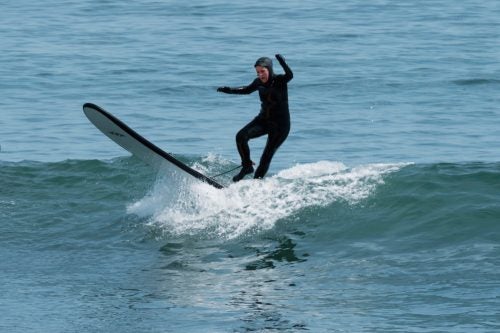
Last fall, my friend and I asked one of our fitness instructors at the local YMCA, who happens to be Peter Panagiotis ’71, aka Peter Pan (read about Peter in “Surf First”), if he’d teach us to surf. That weekend, we had our first lesson. I swallowed more salt water in that hour than ever in my life to that point. My arms hurt for days from paddling— hard—while Peter yelled, “Dig! Dig! You’ll never catch a wave paddling like that!” But it was fun. Really fun. We surfed (Can you call it surfing if you aren’t really standing up and you’re under the board more than on it?) all winter long, Peter’s contagious whooping and laughing inspiring us.
Surfing is much harder than I imagined. It is, as Alexandra Moen ’15 points out in our cover story, “Blue Minds”, humbling. Of the myriad wonderful things about surfing, the chance to be out on the water in any and all weather is pretty high on the list. Rediscovering that feeling of floating while falling asleep after a day in the waves is up there too.
In the book, Blue Mind (see Lauren Poirier’s piece), Wallace J. Nichols asserts that water “provides the most profound shortcut to happiness.” And he has the science to back it up. The science is important and fascinating, but I don’t need it to know that he’s right.
The faculty and staff featured in “Blue Minds” feel a magnetic attraction to the ocean, and they respond by spending their free time on the water—many of them are surfers—and by dedicating their work lives to studying, knowing, and protecting the oceans—locally and around the globe.
The power and pull of the sea isn’t unique to the University of Rhode Island. But we do have something special here. We are positioned—geographically and academically—to connect to the ocean’s power on a daily basis in infinite ways. In doing so, we make ourselves happier, and we deepen our relationship with the sea, helping to ensure its health and survival, and, with it, our own.
—Barbara Caron, Editor-in-Chief
Social Snaps | Instagram
`
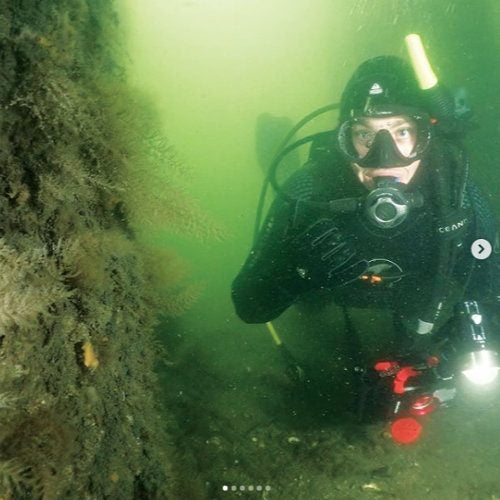
Fish-Eye Lens
The newest diving class offered at URI is advanced diving and underwater photography. @uriscubaprogram
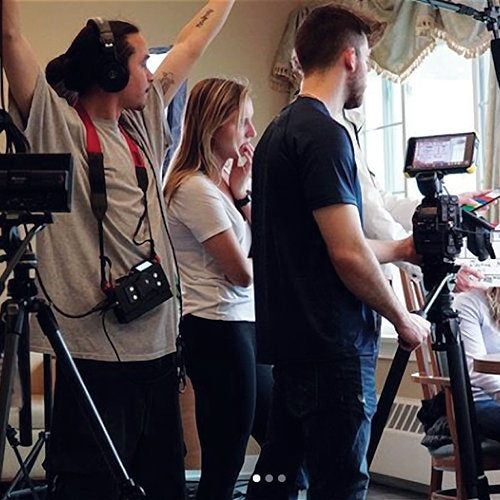
A Man’s Life
Harrington School film media and public relations major Justine Mirek ’19 produced a film poignantly portraying her grandfather’s struggle with Alzheimer’s disease. @uriharringtonschool
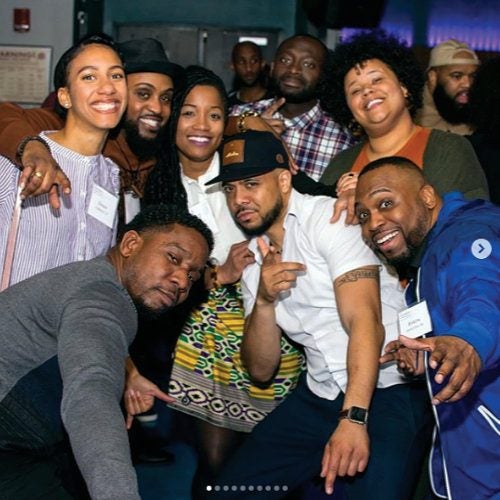
Rooted in Community
URI’s Alumni of Color Network gets together regularly, and always has a good time. @uriacn
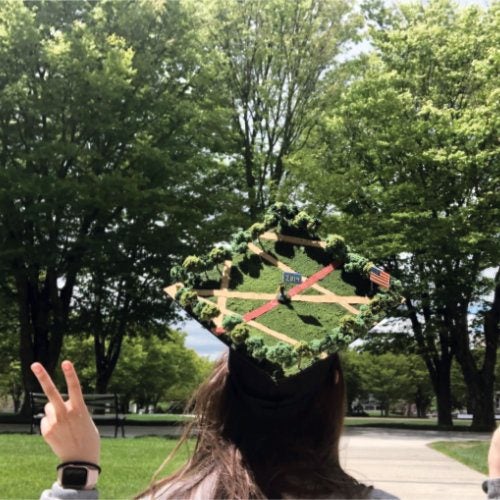
Peace Out
Graduating seniors got creative with their caps in the #myuricap contest for a chance at VIP seating and parking for Commencement 2019. Cap by Savannah Mullarney ’19. @universityofri
